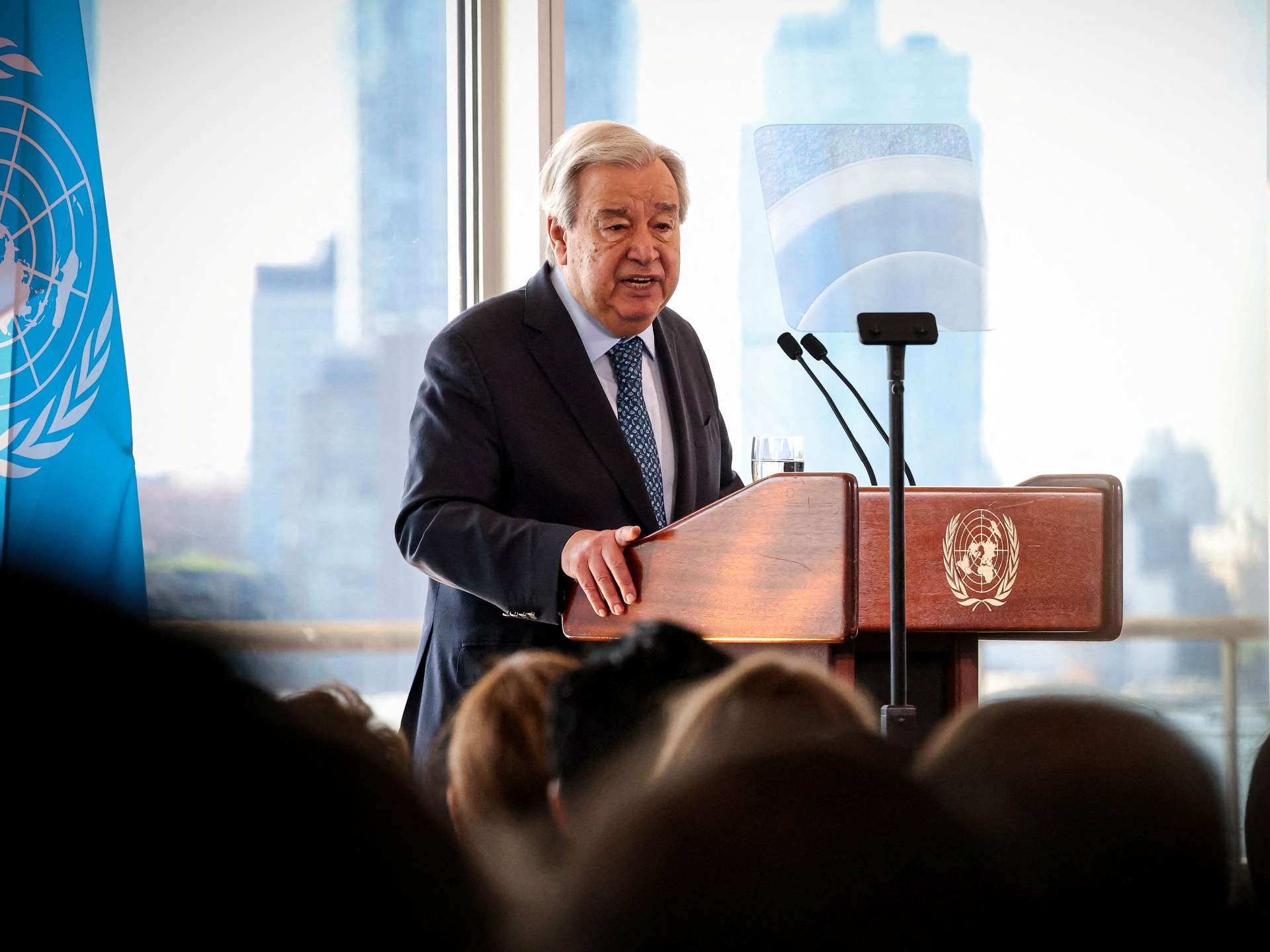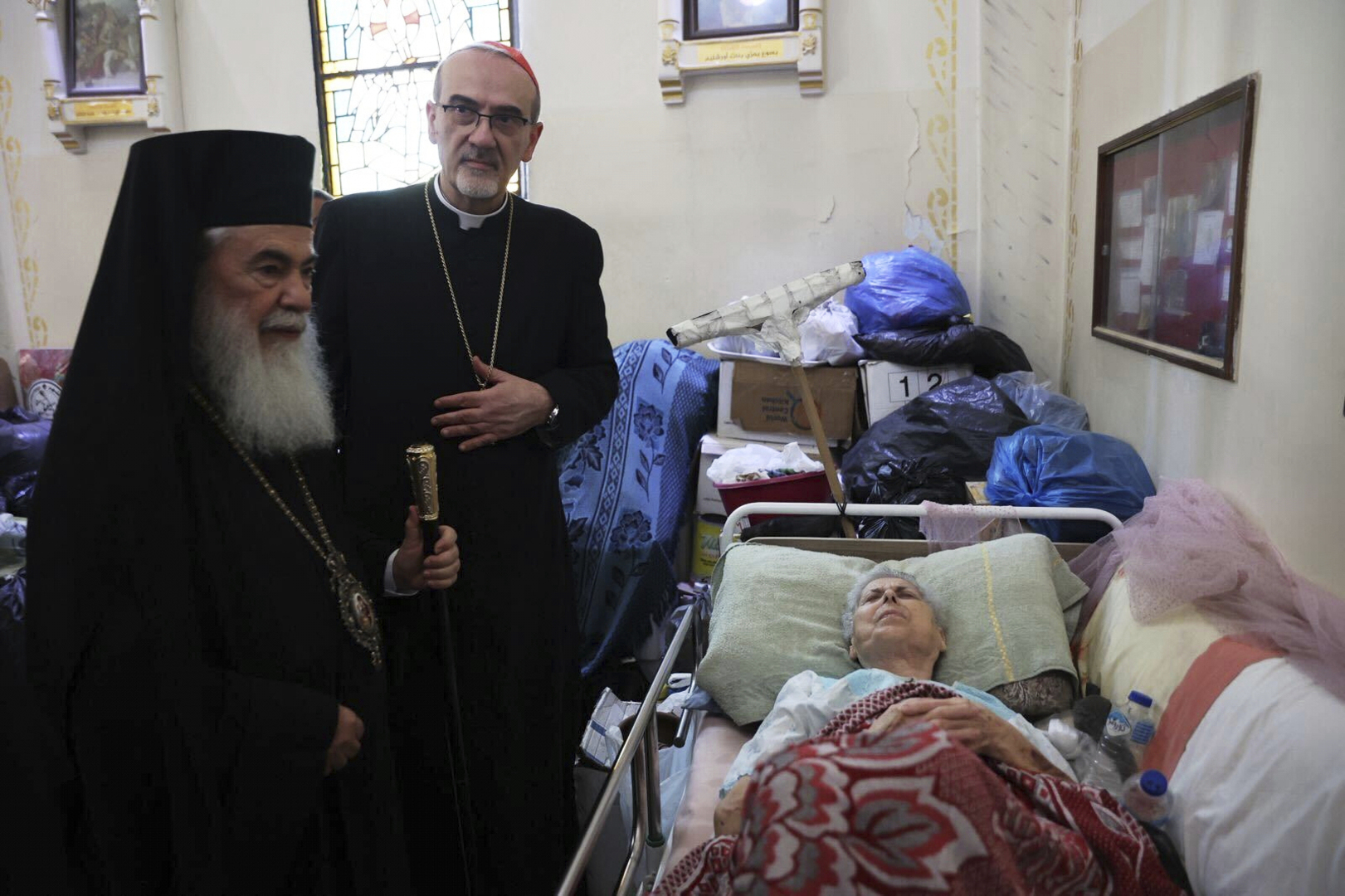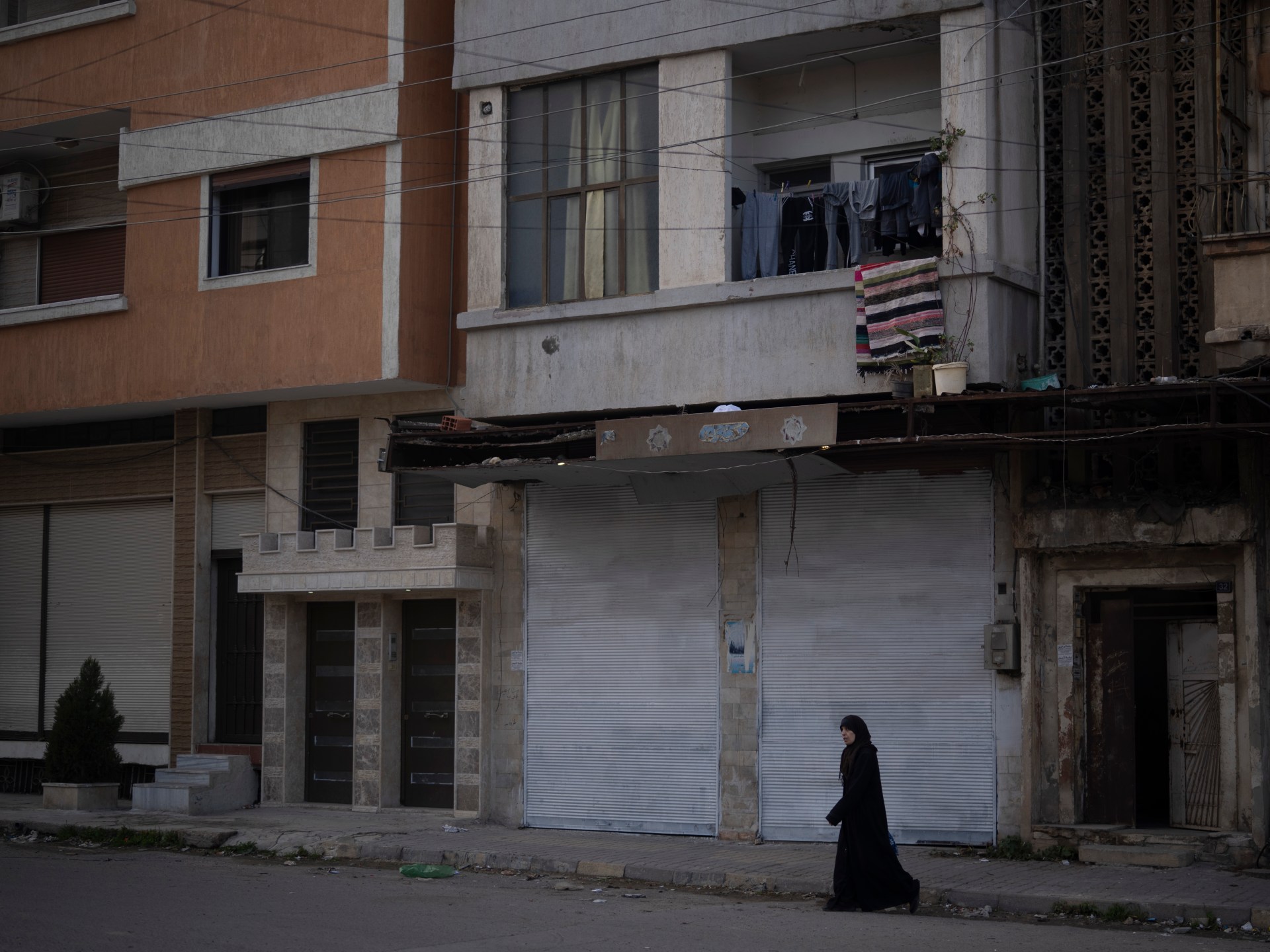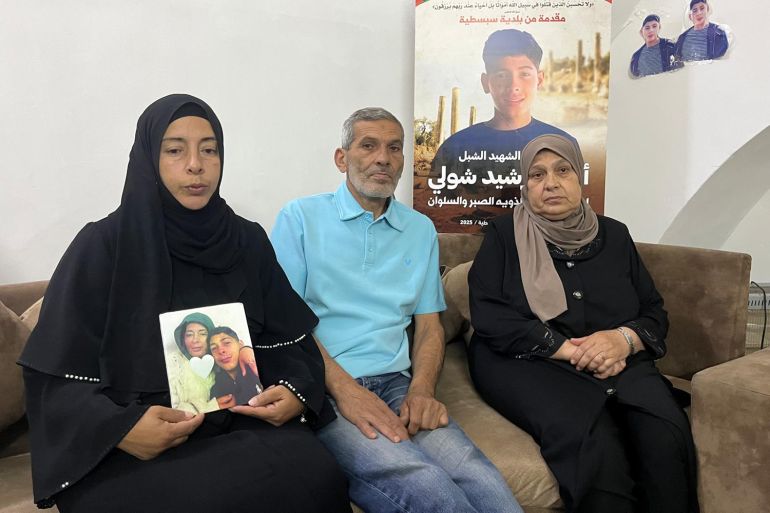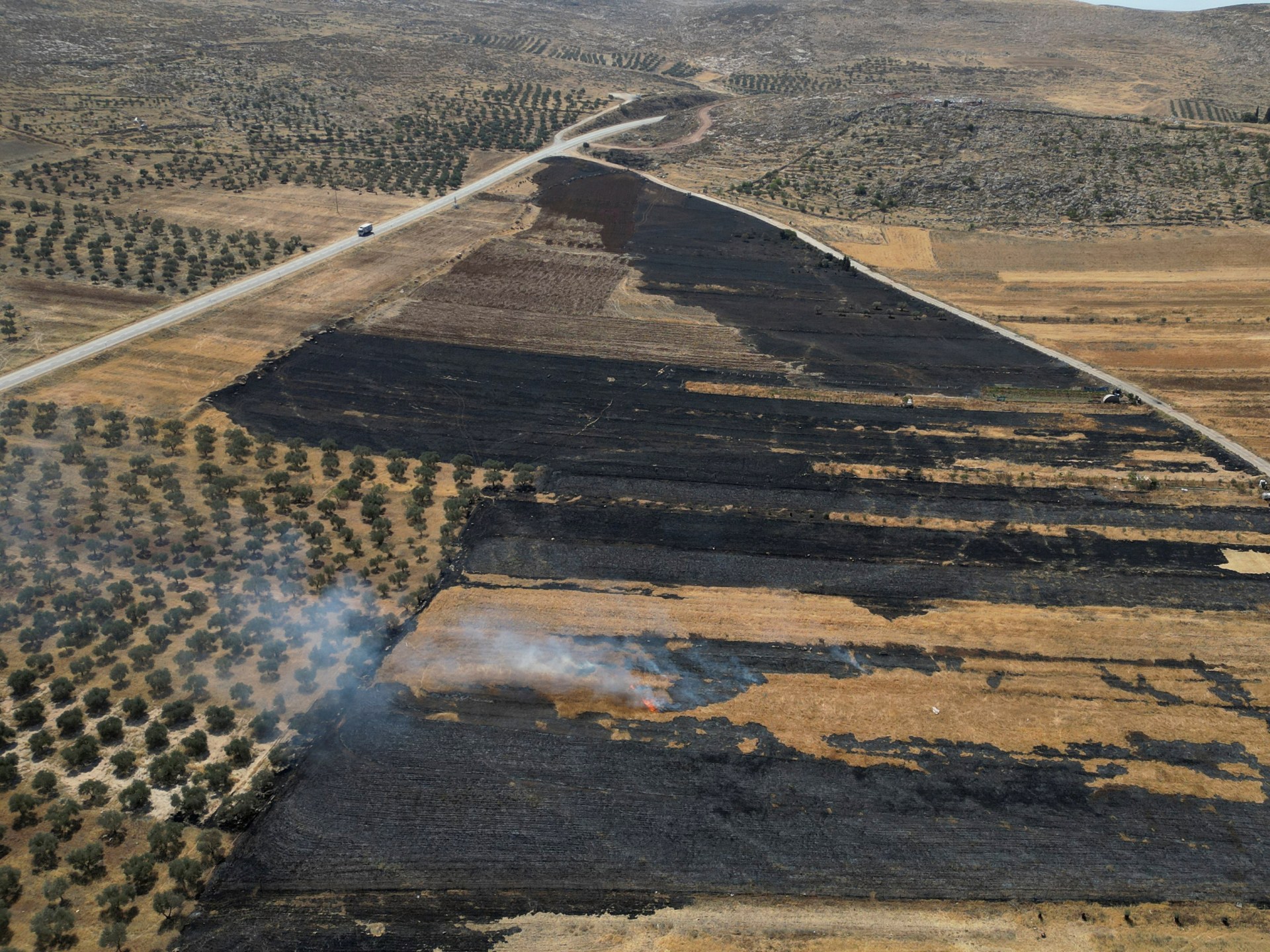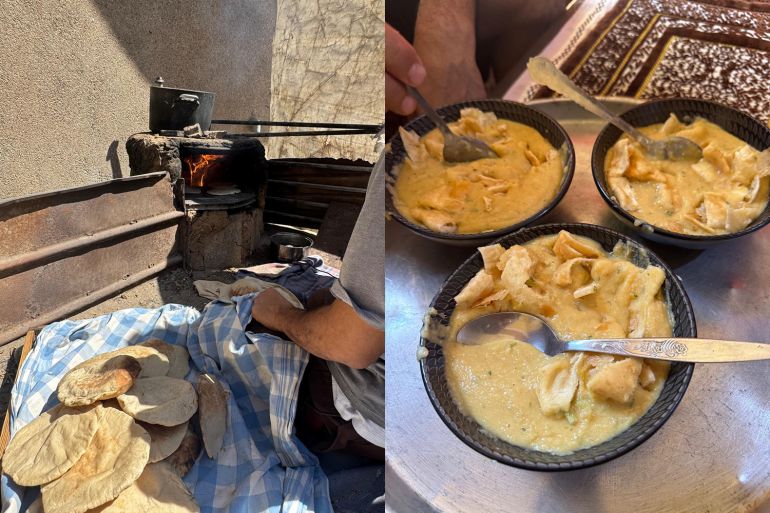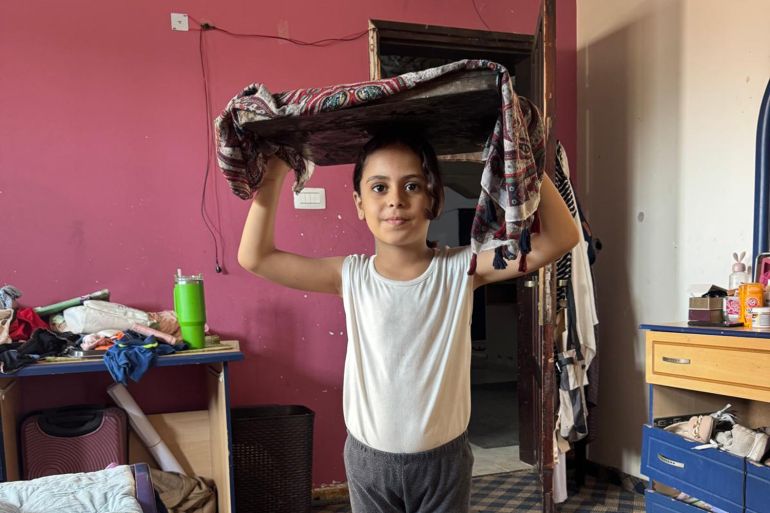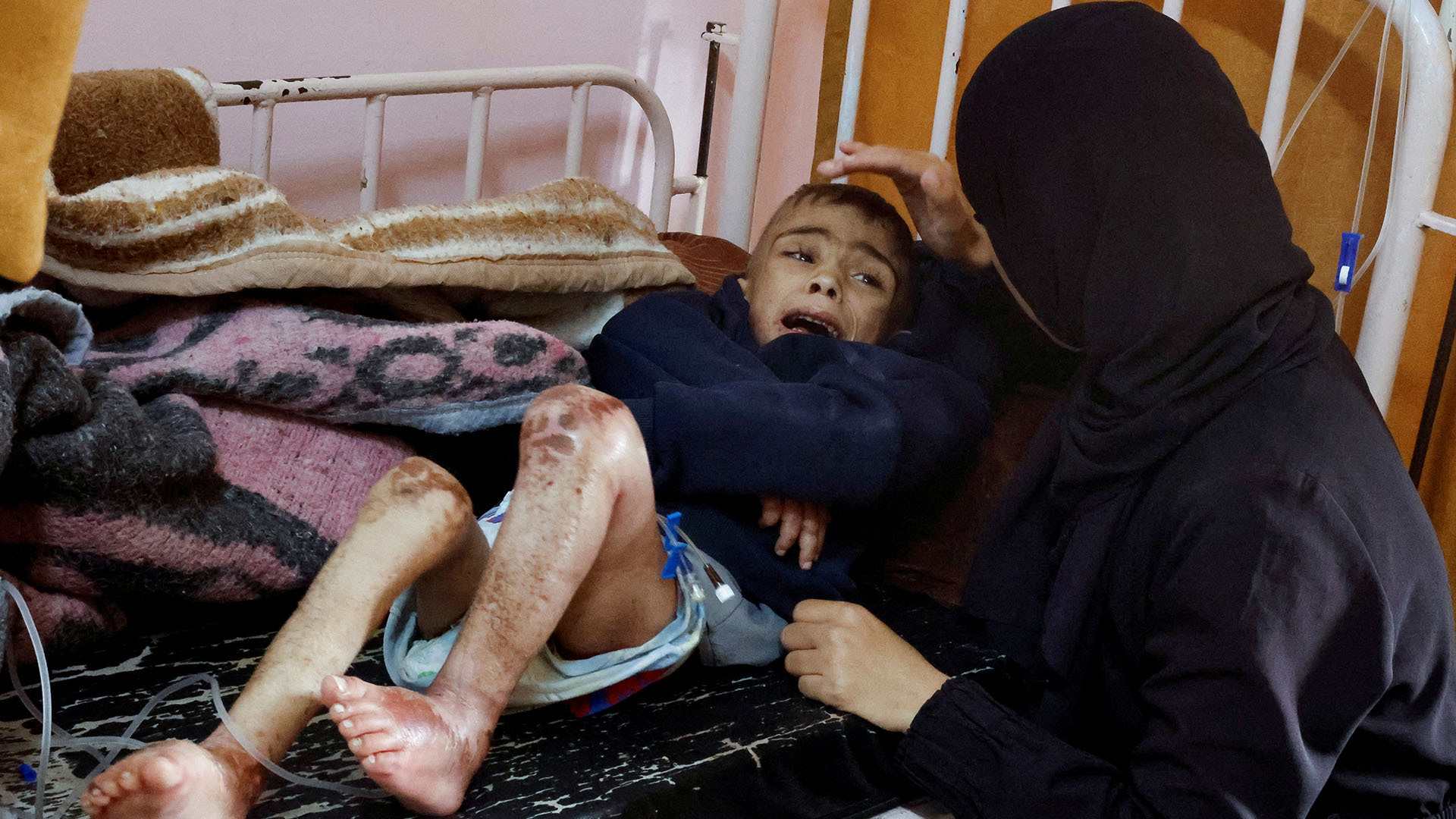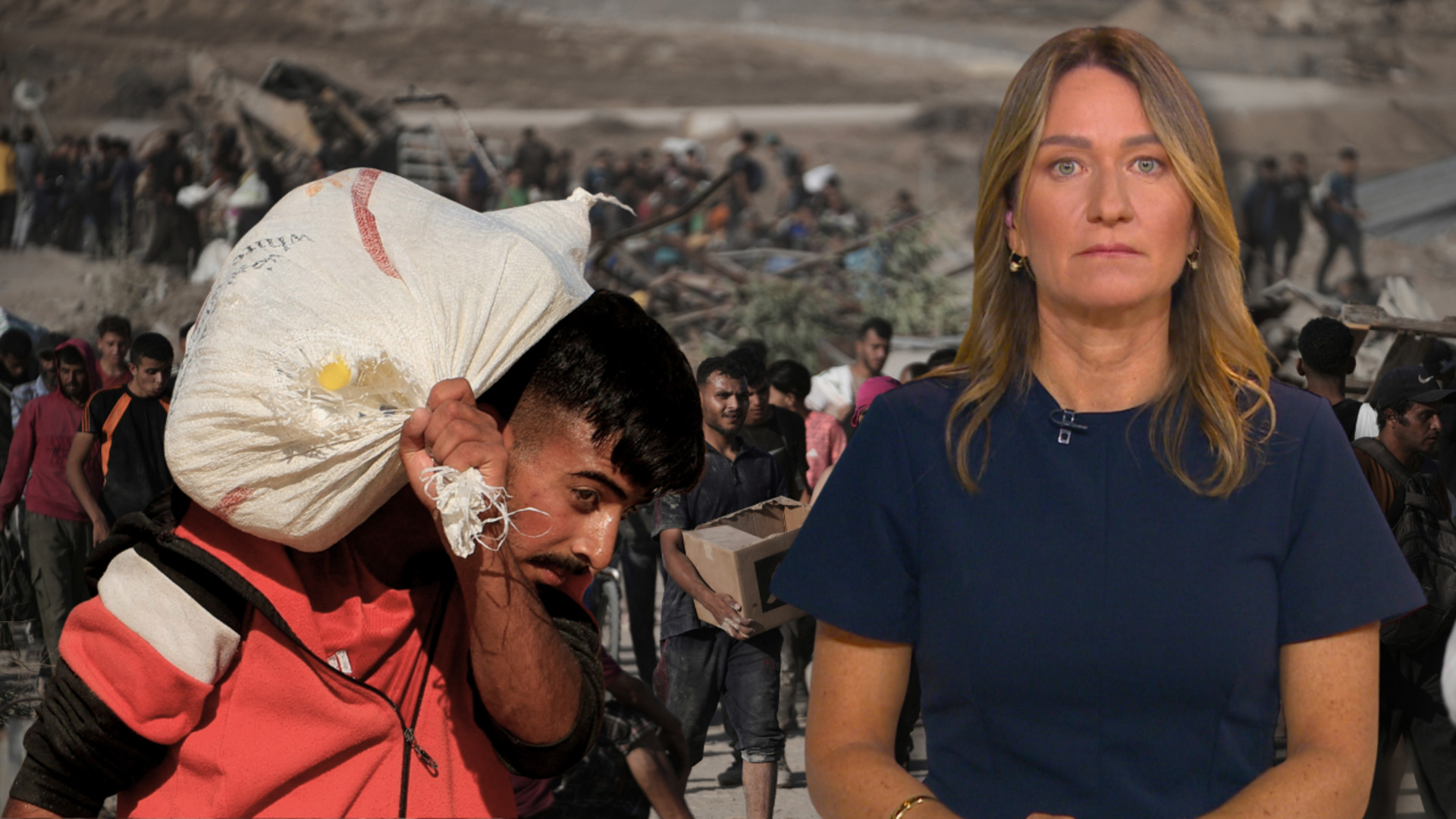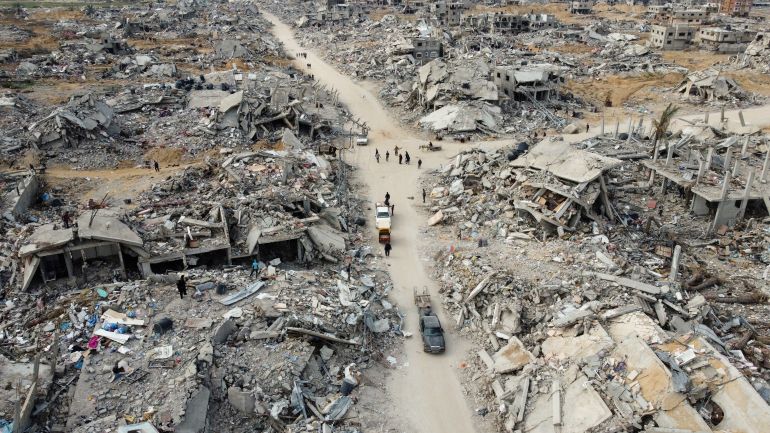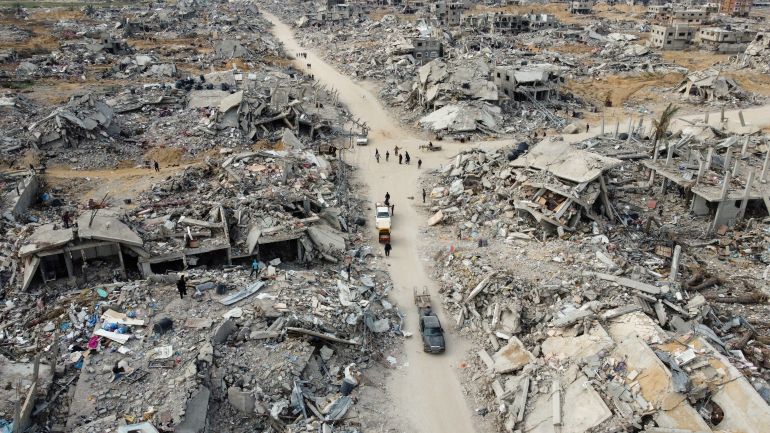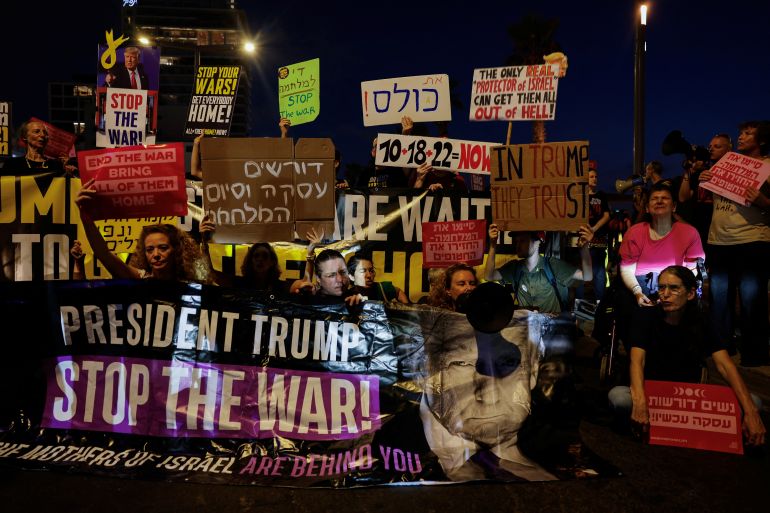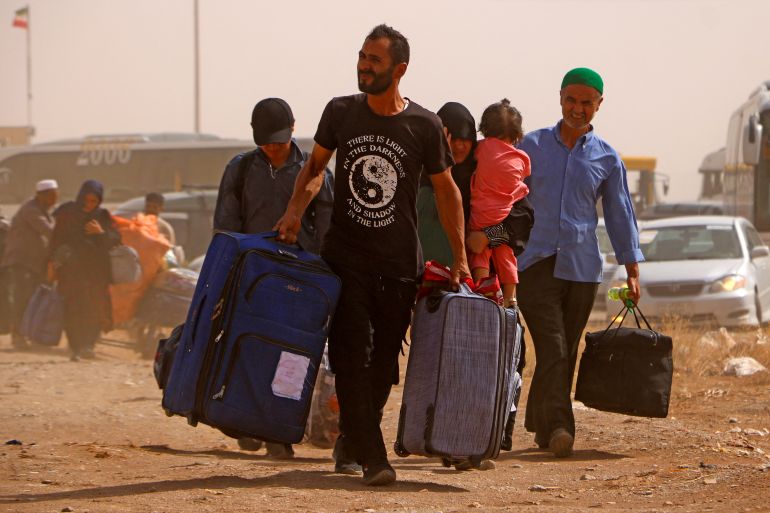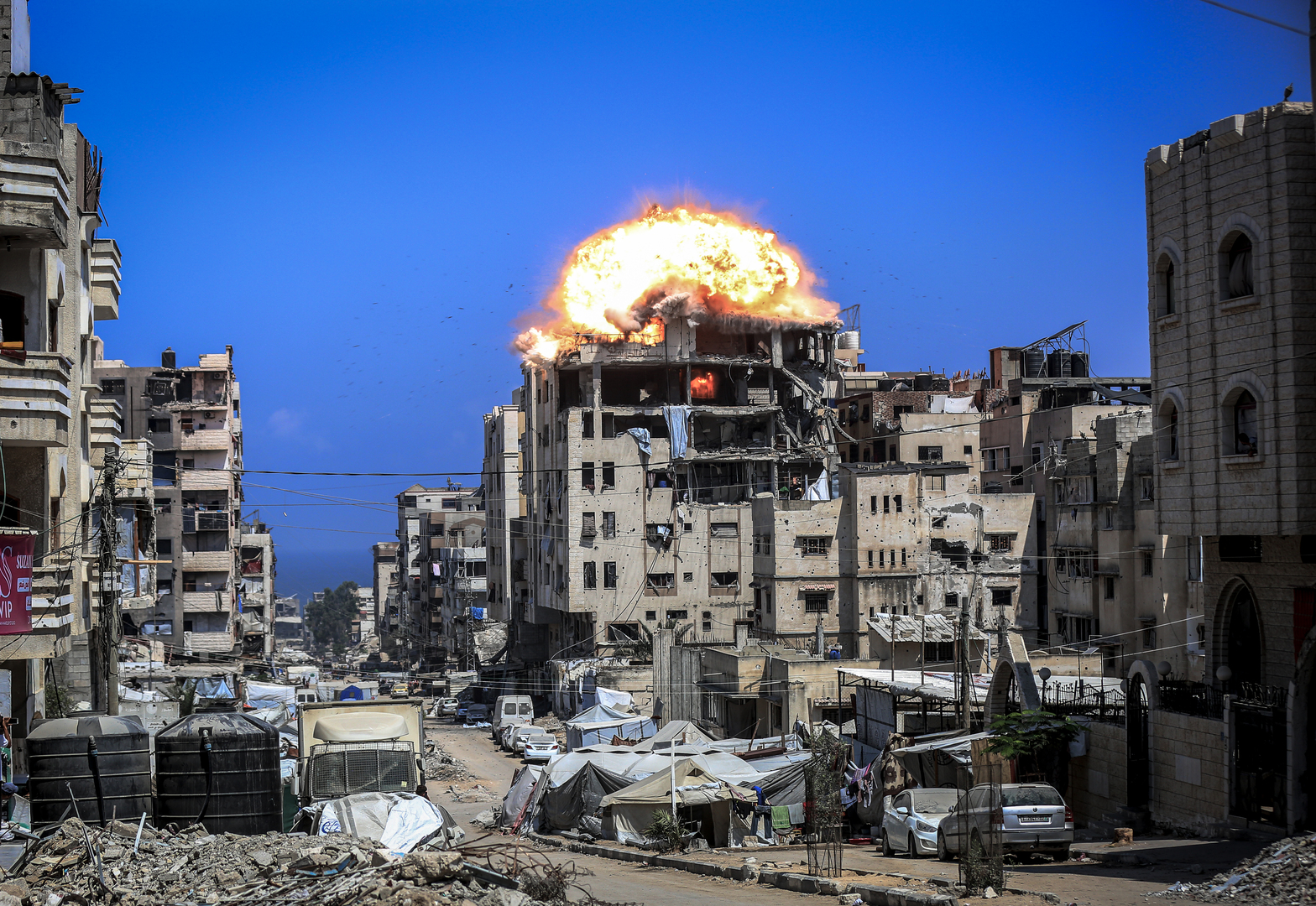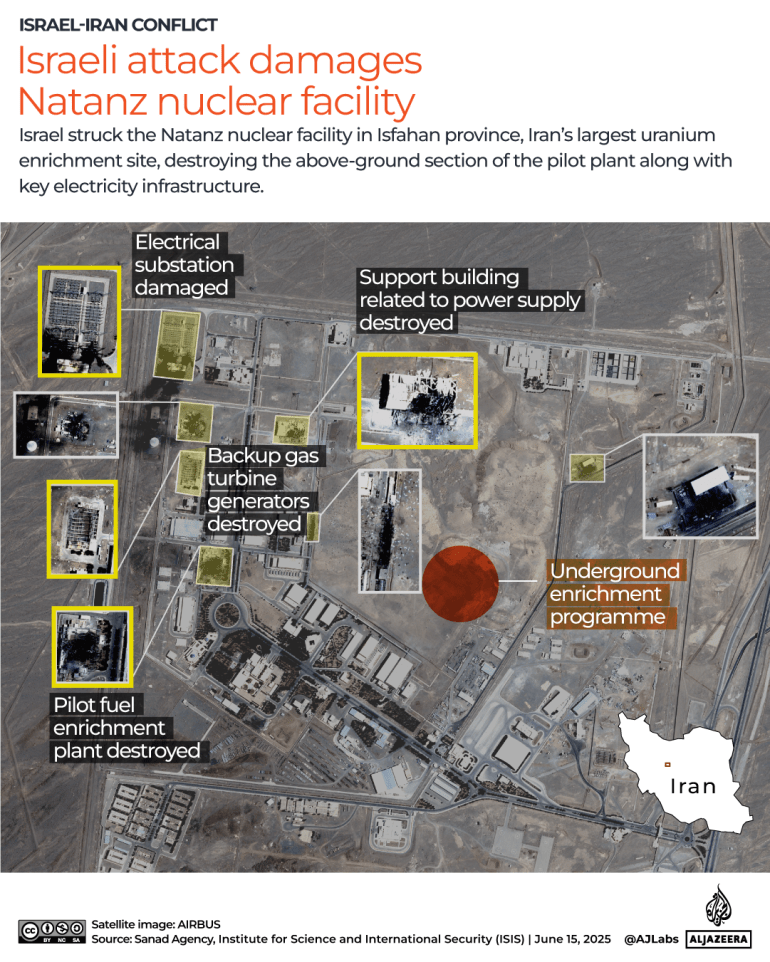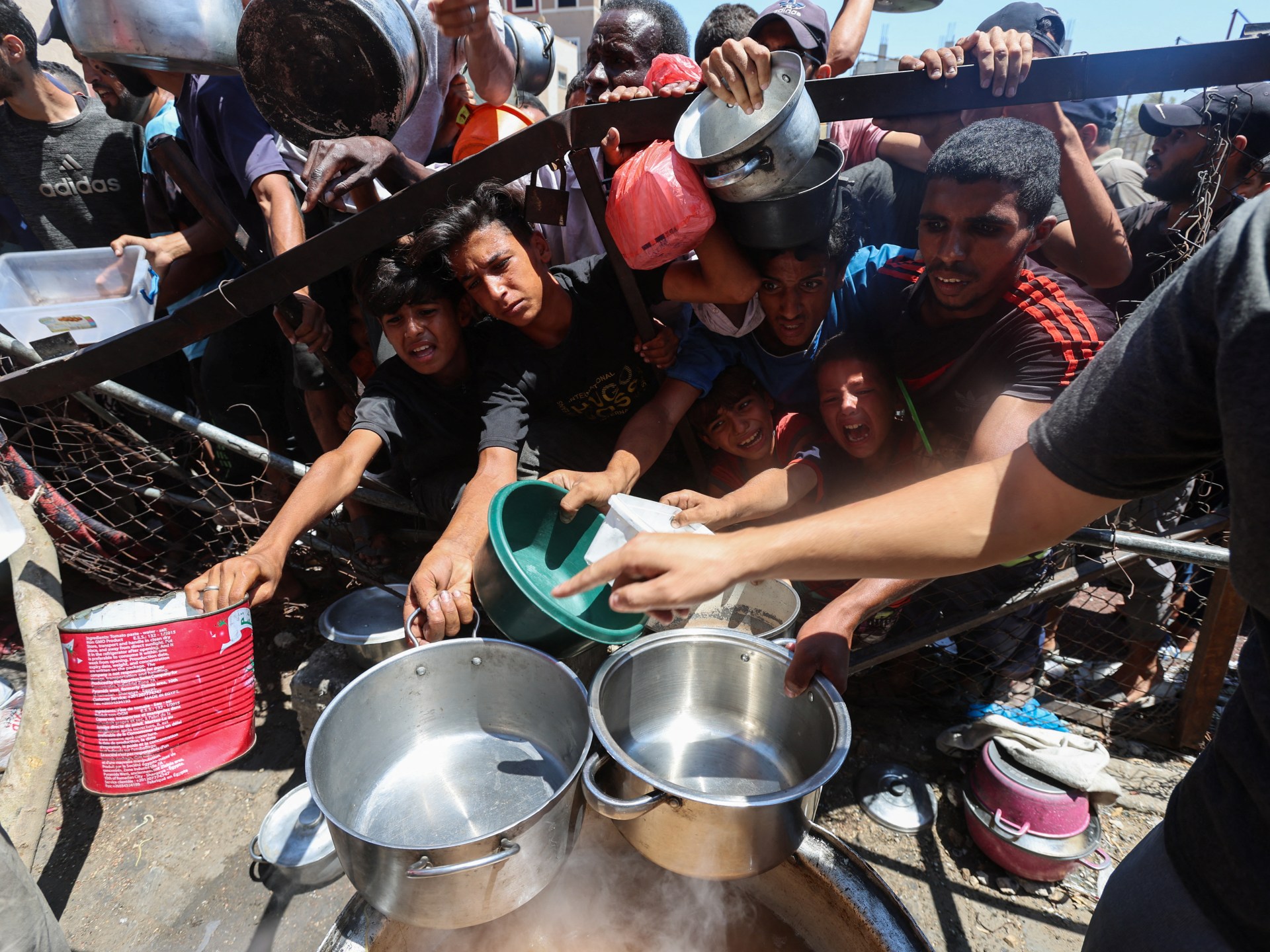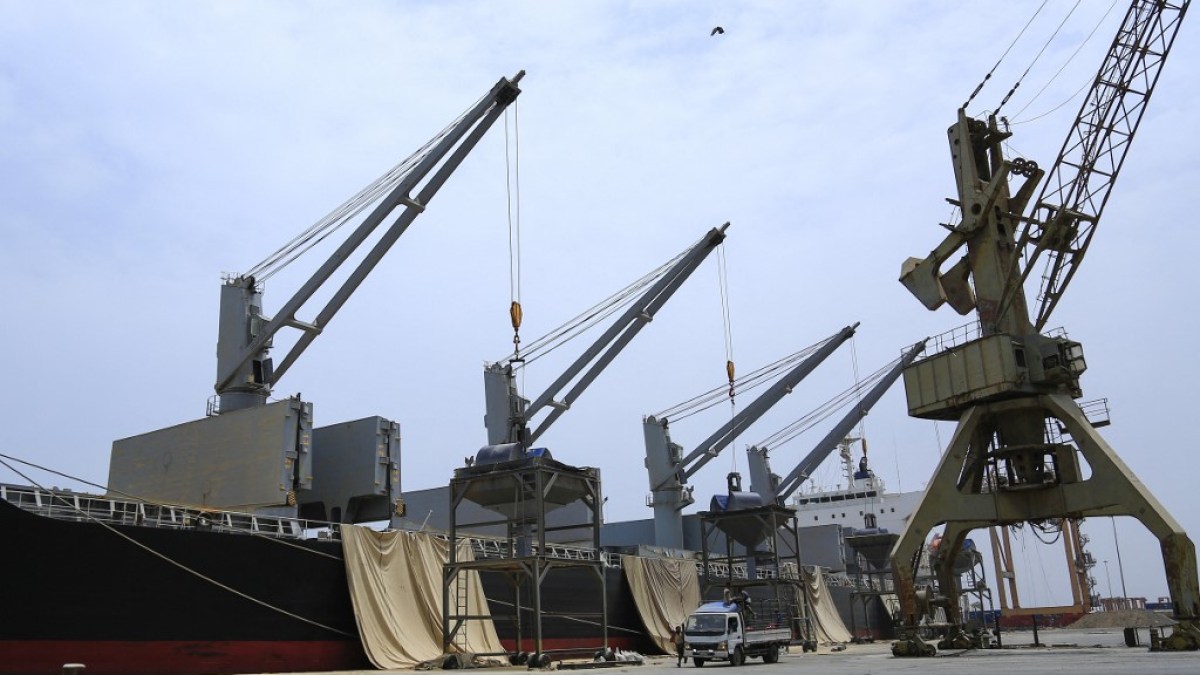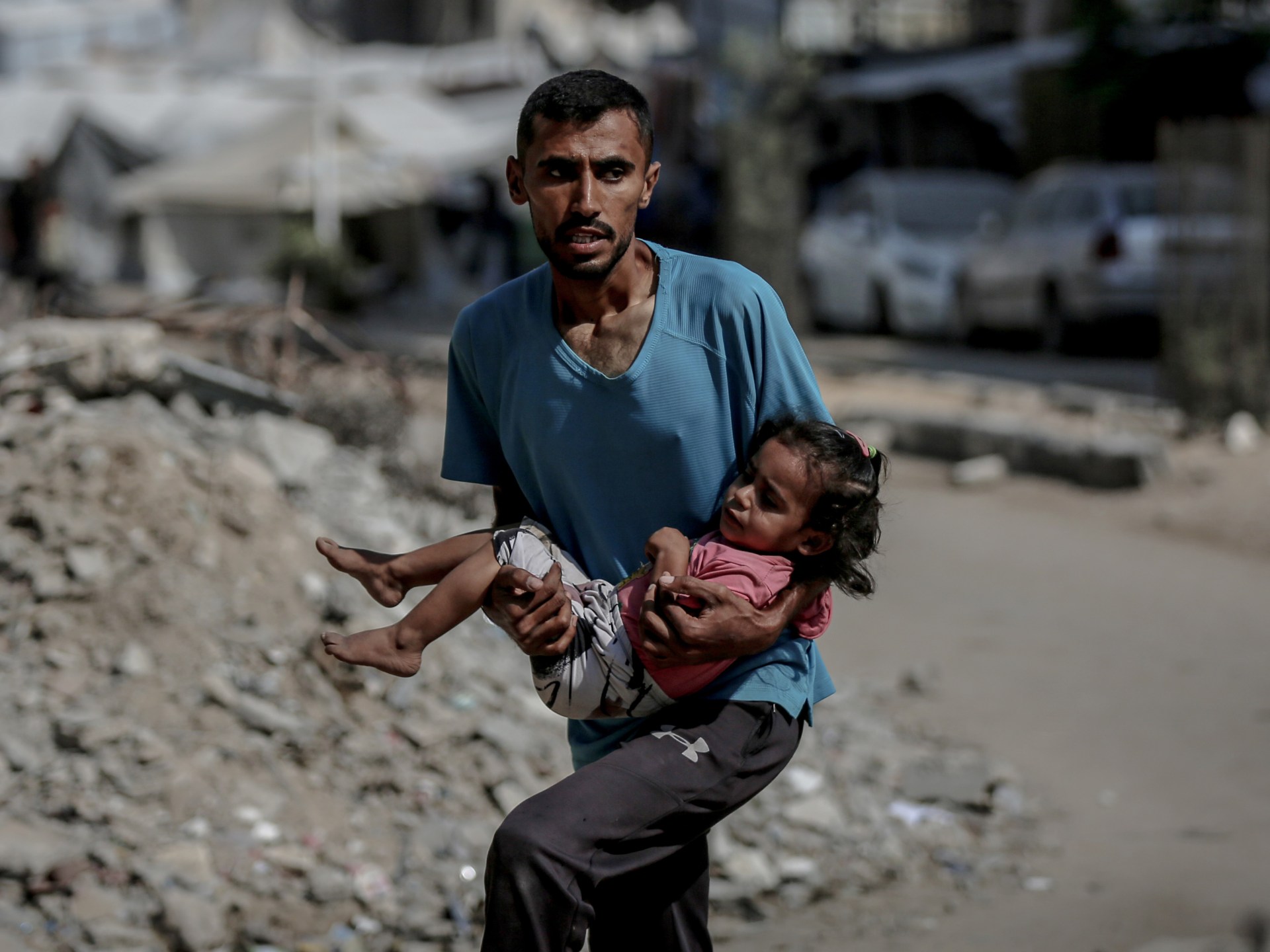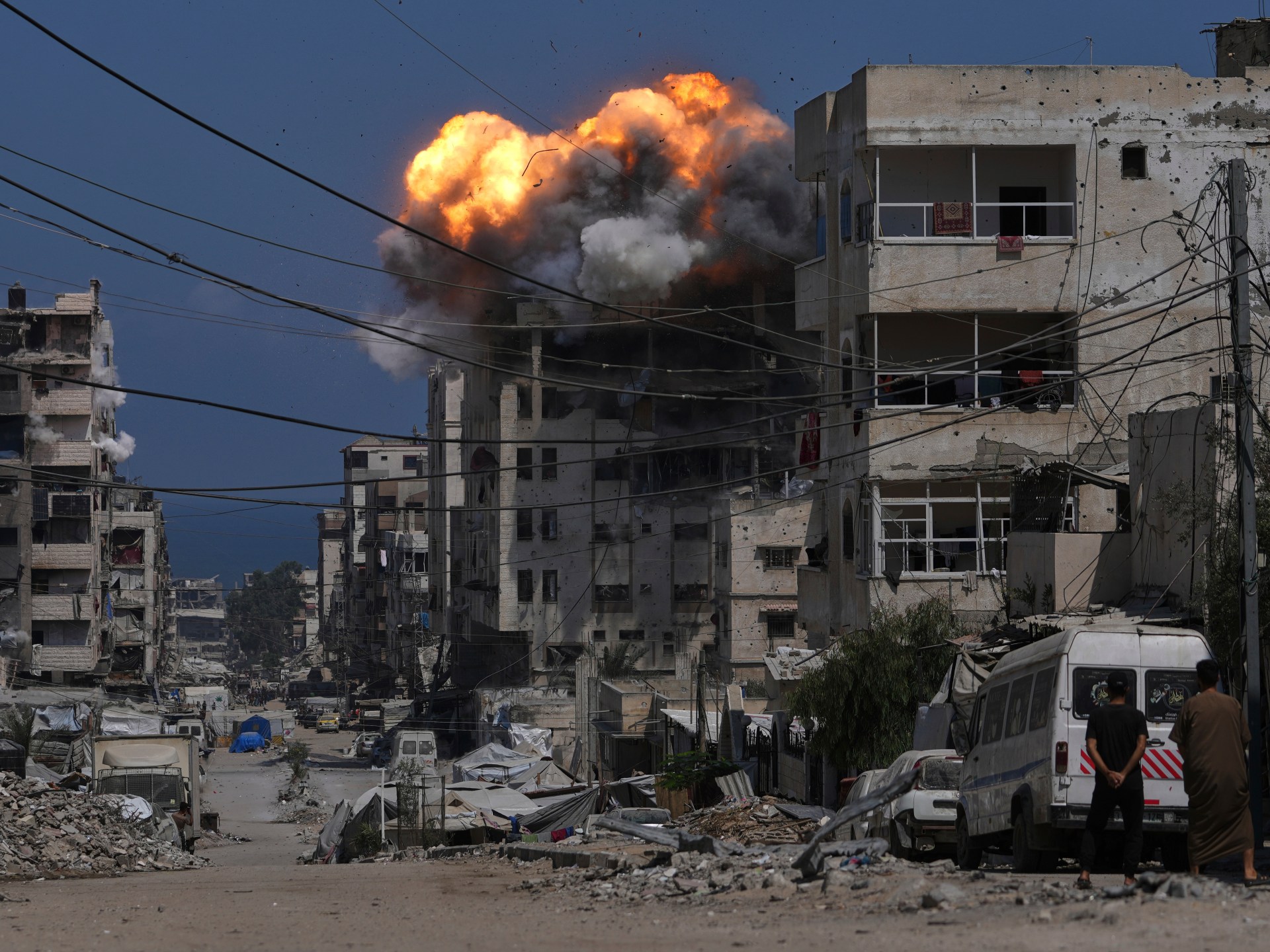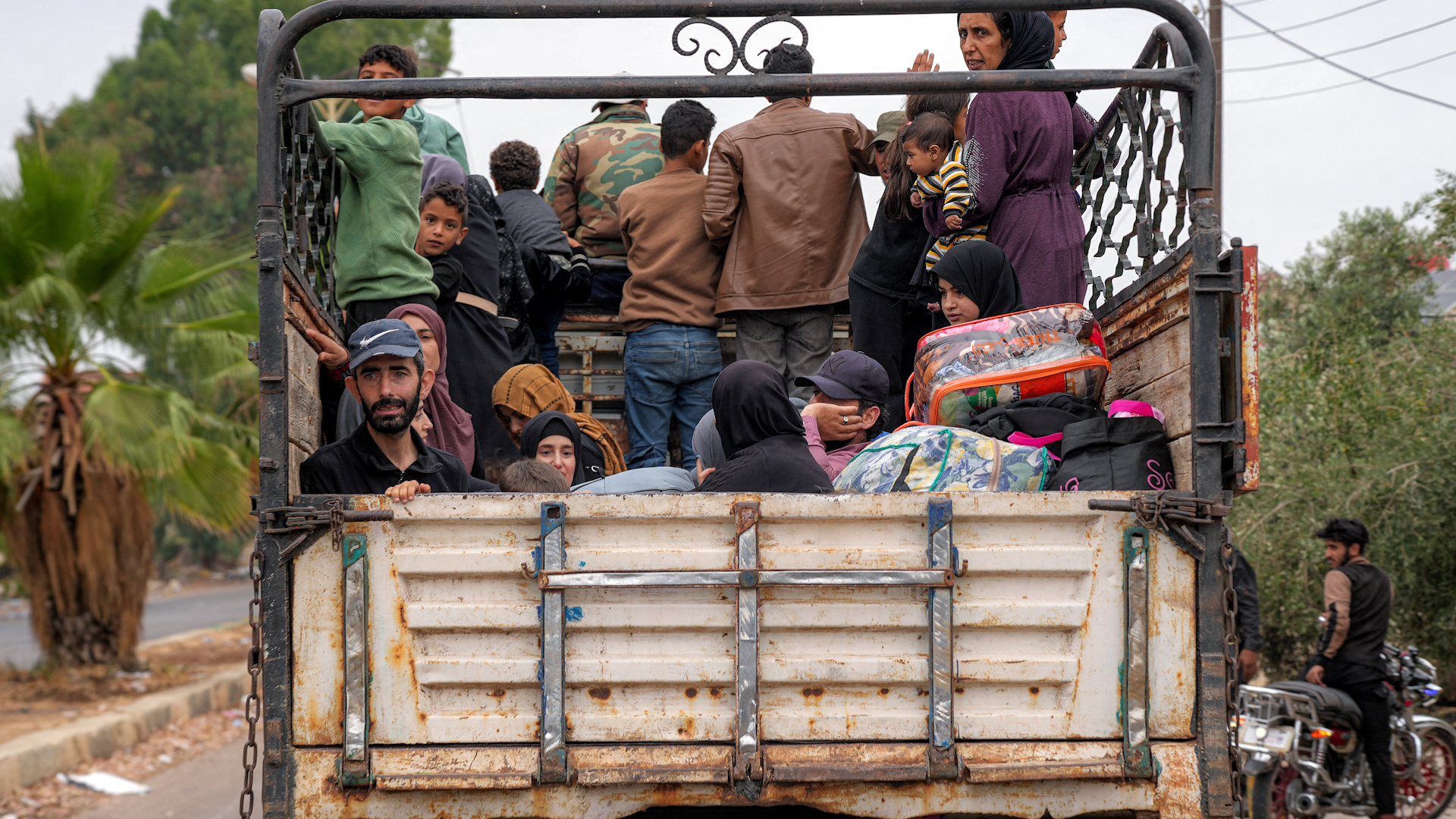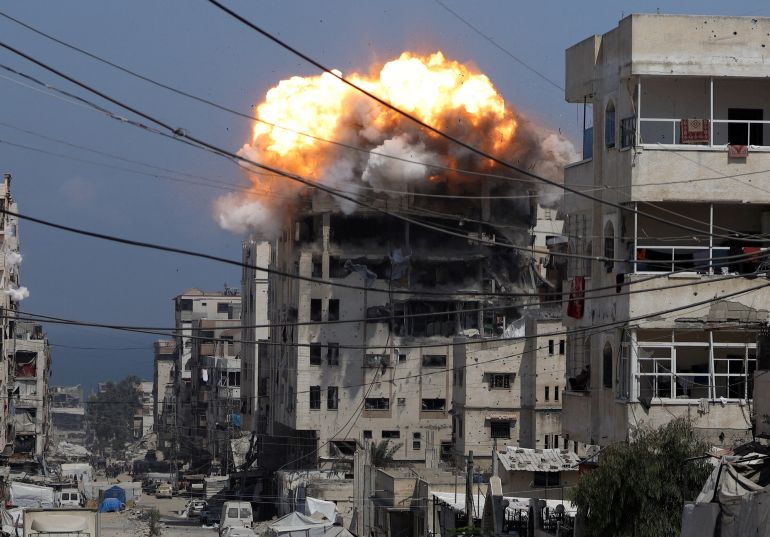At least 15 starve to death in 24 hours in Gaza as Israel continues attacks | Gaza News
At least 15 people, including a six-week-old baby, have starved to death in the last 24 hours in the besieged Gaza Strip, according to health officials, who say a wave of hunger that has loomed over the bombarded enclave for months is now finally crashing down.
Six-week-old Yousef’s family could not find baby formula to feed him, said his uncle, Adham al-Safadi.
“You can’t get milk anywhere, and if you do find any, it’s $100 for a tub,” he told the Reuters news agency.
Three other children were among the 15 people who died from starvation on Tuesday, including 13-year-old Abdulhamid al-Ghalban, who died in a hospital in the southern city of Khan Younis.
According to Gaza’s Ministry of Health, at least 101 people, including 80 children, have died from hunger and malnutrition since Israel launched its assault on Gaza in October 2023. Most of the deaths have come in the last few weeks.
Gaza has seen its food stocks run out since Israel cut off all supplies to the territory in March. Israel then partially lifted the blockade in May, allowing a trickle of aid supplies to enter the territory and be distributed by the US- and Israeli-backed Gaza Humanitarian Foundation (GHF), largely bypassing the United Nations.
More than 1,000 Palestinians have been killed since May while trying to get aid, mostly near the GHF distribution sites, according to the UN rights office.
The head of the UN Palestinian refugee agency, UNRWA, Phillipe Lazzarini, said the aid distribution scheme was a “sadistic death trap”.
“The so called ‘GHF’ distribution scheme is a sadistic death trap. Snipers open fire randomly on crowds as if they are given a licence to kill,” Lazzarini said on Tuesday on X.
Israel accuses Hamas of siphoning off aid, without providing evidence of widespread diversion, and blames UN agencies for failing to deliver food it has allowed in.
The GHF has rejected what it said were “false and exaggerated statistics” from the UN.
‘Horror show’
Lazzarini also warned that the UN agency’s staff, as well as doctors and humanitarian workers, were fainting on duty in Gaza due to hunger and exhaustion.
UN Secretary-General Antonio Guterres called the situation for the 2.3 million Palestinians in Gaza facing bombardment, malnutrition and starvation a “horror show”, with “a level of death and destruction without parallel in recent times.
“We are seeing the last gasp of a humanitarian system built on humanitarian principles,” Guterres told the UN Security Council. “That system is being denied the conditions to function.”
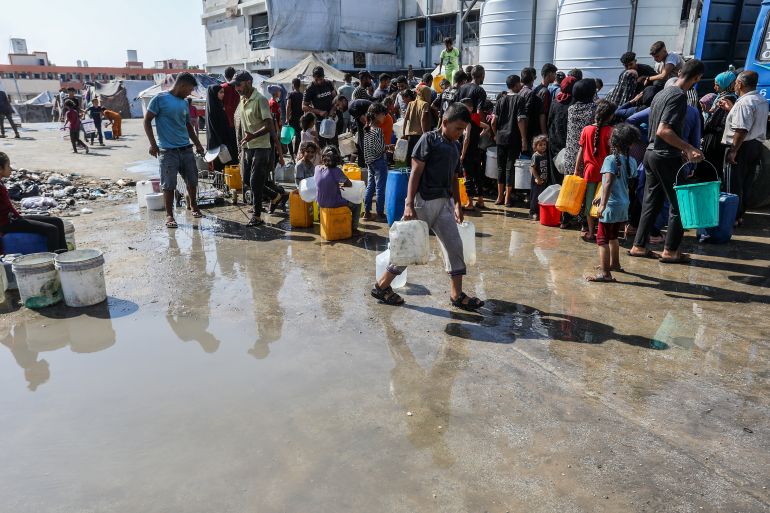
Speaking to reporters, Mohammed Abu Salmiya, the director of Gaza’s al-Shifa Hospital, said malnourished Palestinians were arriving at Gaza’s remaining functioning hospitals “every moment”, and warned that there could be “alarming numbers” of deaths due to starvation.
“Hospitals are already overwhelmed by the number of casualties from gunfire. They can’t provide much more help for hunger-related symptoms because of food and medicine shortages,” said Khalil al-Daqran, the spokesperson for Gaza’s Al-Aqsa Martyrs Hospital.
Deqran said some 600,000 people were suffering from malnutrition, including at least 60,000 pregnant women. Symptoms among those going hungry include dehydration and anaemia, he said.
While Gaza has widespread shortages of goods due to the Israeli restrictions, baby formula, in particular, is in critically short supply, according to aid groups, doctors and residents.
In a statement, Hamas said it was time to “break the restrictions” and allow for more aid to enter Gaza, adding that it was surprised by the “silence” of Arab and Islamic countries in light of the “systematic genocide and criminal starvation” in the enclave.
Deadly attacks continue
Medical sources told Al Jazeera that at least 81 other Palestinians were killed in Israeli attacks across Gaza on Tuesday, including 31 people who were seeking aid.
Mahmoud Bassal, the spokesman for the Palestinian Civil Defence, said Israeli strikes on the Shati refugee camp west of Gaza City killed at least 13 people and wounded more than 50.
In Gaza City, an Israeli attack on a building housing displaced Palestinians killed 15 people, including six children, according to a source at al-Shifa Hospital.

Al Jazeera’s Hani Mahmoud, reporting from Gaza City, said Israeli air strikes hit residential clusters in the eastern part of the city, particularly the Zeitoun neighbourhood. A “group of people” was hit, he said.
The attacks come a day after Israeli tanks pushed into southern and eastern parts of Deir el-Balah in central Gaza for the first time since the deadly assault began.
According to Mahmoud, “many Palestinians are unable to go back to their homes as they are in the firing line of heavy artillery”, despite claims by the Israeli army that it has concluded its assault in Deir el-Balah.
“Quadcopters and surveillance drones also hover over the area, creating an atmosphere of intimidation and fear,” Mahmoud said.
The Civil Defence agency’s Bassal said two people were killed in Deir el-Balah on Tuesday.
The UN Office for the Coordination of Humanitarian Affairs (OCHA) estimated that between 50,000 and 80,000 people were living in the area, which, until the Israeli offensive this week, had been considered the only relatively safe area in the tiny Strip.
Some 30,000 were living in displacement camps.
OCHA said that nearly 88 percent of the entire Gaza Strip was now either under evacuation threats or within Israeli militarised zones, forcing the population into an ever-shrinking space.
World Health Organization chief Tedros Adhanom Ghebreyesus, meanwhile, accused Israeli troops of entering its staff residence and forcing women and children to evacuate, as they handcuffed, stripped and interrogated male staff at gunpoint.
Israel’s military campaign in Gaza has killed nearly 60,000 Palestinians, mostly women and children, according to health officials.
